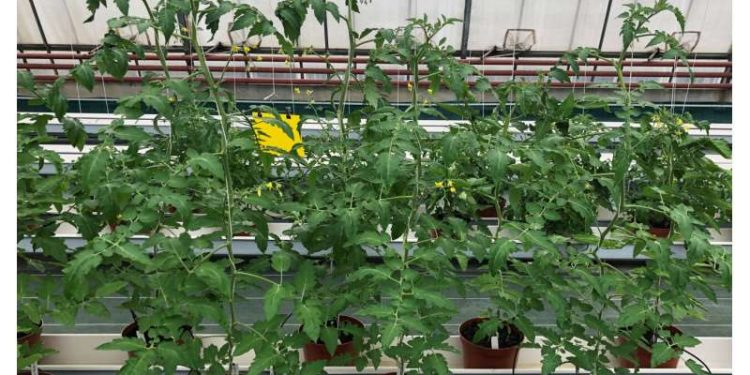For thousands of years, crops have been shaped by domestication processes. Farmers cross-breed and select new varieties, adapted to constantly changing environments. Although efficient, this process is time consuming. Moreover, the desired trait must be present somewhere within the diversity of the species to be improved.
Copying a mechanism from one species into a species of agronomic interest thus becomes a new challenge. Among the technologies available, new plant genome editing techniques have been available since 2012. Often compared to molecular scissors, the CRISPR-Cas9 technique makes it possible to modify a region of the plant’s DNA in a targeted and precise manner.
Among many crop species such as pepper and pea, some cultivars are resistant to diseases caused by viruses of the genus potyvirus. How do they do this? To infect plants, viruses have to hijack proteins from their hosts but these proteins already fulfill functions in the plant cell. Plants that resist infection have acquired mutations in a gene that codes for one of these “susceptibility” proteins.
These mutations make the use of the host protein by the virus impossible, while it remains functional for the plant. The plant with these mutations thus resists infection, without changing anything else for the plant!
A new study aimed to transpose this mechanism to plants of agronomic interest, by studying its feasibility in cherry tomatoes. To do this, the teams from INRAE used an approach that differed from the conventional approach. They did not try to inactivate the gene that makes the plant susceptible to the virus, but instead modified it to mimic the mutations responsible for resistance present in peas or peppers.
To this end, they applied the CRISPR-Cas9 technique to target two regions of this gene. These simultaneous modifications lead to changes in the protein produced by this gene. These changes give the plant a strong resistance to several viruses of the potyvirus genus, including PVY. As with natural mutations selected in other species, these changes do not alter the expression or accumulation of the protein produced by the gene, nor do they affect its function.
This work constitutes a proof of concept, proposing a new approach to editing precise mutations, aiming to reproduce natural resistances in susceptible species and thus limit the use of pesticides.
The findings are published in the Plant Biotechnology Journal.







